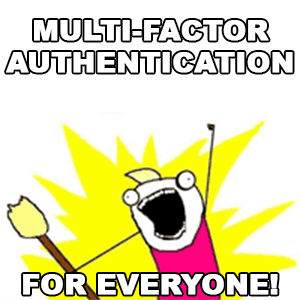TwoFactorAuth

PHP library for Two Factor Authentication (TFA / 2FA)
Getting Started
1. Installation
The best way of making use of this project is by installing it with composer.
composer require robthree/twofactorauth
2. Create an instance
TwoFactorAuth constructor requires an object able to provide a QR Code image. It is the only mandatory argument. This lets you select your preferred QR Code generator/library.
See QR code providers documentation for more information about the different possibilites.
Example code:
use RobThree\Auth\TwoFactorAuth;
use RobThree\Auth\Providers\Qr\QRServerProvider; // if using library's provider
use RobThree\Auth\Providers\Qr\BaconQrCodeProvider; // if using Bacon
use RobThree\Auth\Providers\Qr\EndroidQrCodeProvider; // if using Endroid
// using the default Qr Code provider from the library
$tfa = new TwoFactorAuth(new QRServerProvider(), "Your app name");
// using Bacon
$tfa = new TwoFactorAuth(new BaconQrCodeProvider(), "Your app name");
// using Endroid
$tfa = new TwoFactorAuth(new EndroidQrCodeProvider(), "Your app name");
// using a custom object implementing IQRCodeProvider interface
$tfa = new TwoFactorAuth(new MyQrCodeProvider(), "Your app name");
// using named argument and a variable
$tfa = new TwoFactorAuth(qrcodeprovider: $qrGenerator, issuer: "Your app name");
3. Shared secrets
When your user is setting up two-factor, or multi-factor, authentication in your project, you can create a secret from the instance.
$secret = $tfa->createSecret();
Once you have a secret, it can be communicated to the user however you wish.
<p>Please enter the following code in your app: '<?php echo $secret; ?>'</p>
Note: until you have verified the user is able to use the secret properly, you should store the secret as part of the current session and not save the secret against your user record.
4. Verifying
Having provided the user with the secret, the best practice is to verify their authenticator app can create the appropriate code.
$result = $tfa->verifyCode($secret, $_POST['verification']);
If $result is true then your user has been able to successfully record the $secret in their authenticator app and it has generated an appropriate code.
You can now save the $secret to your user record and use the same verifyCode method each time they log in.